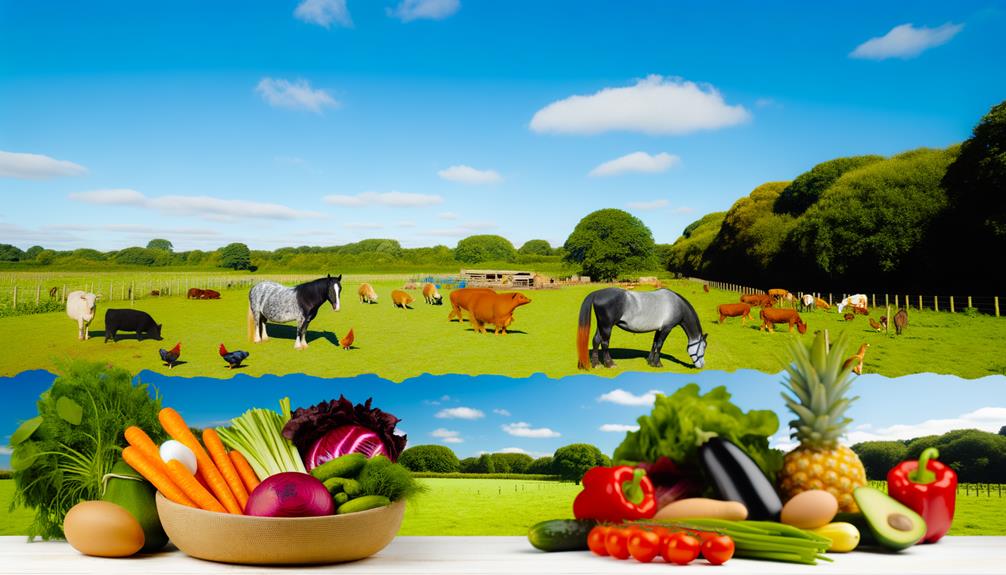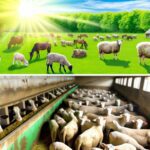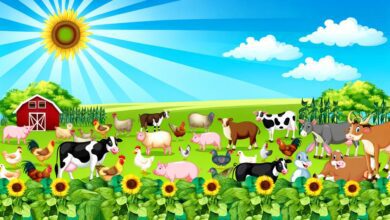Imagine, for a moment, a tapestry woven from countless threads, each one representing a choice you make at the dinner table. Every thread of plant-based fiber strengthens the pattern of compassion and respect for animal rights, while the animal-based strands often weave in the darker hues of suffering and exploitation. As you sit down to enjoy your meal, you’re not just satisfying your own hunger—you’re contributing to a global shift that reverberates through the lives of countless animals. The surge of plant-based products on the market isn’t just a culinary trend; it’s a beacon of hope for animal welfare, signaling a decrease in the need for factory farming and its associated cruelties. But how exactly does your preference for a veggie burger over a beef patty extend beyond your plate and become an advocate for the voiceless? By exploring the ethical, cultural, and market-driven dynamics at play, you’ll uncover the profound influence your food choices have on the broader canvas of animal rights, and perhaps be inspired to weave more plant-based threads into the fabric of your own lifestyle.
Key Takeaways
- Choosing plant-based products reduces demand for animal-based products and decreases cruelty in the animal agriculture industry.
- Plant-based choices alleviate the suffering of animals in factory farms and prevent practices like forced impregnation and calf separation in the dairy industry, and the culling of male chicks in the egg industry.
- Less intensive farming for plant-based products leads to better habitats and environmental impacts, promoting animal welfare.
- Growing demand for plant-based products influences market dynamics and encourages institutions to prioritize animal rights, potentially leading to legal changes and stronger animal welfare laws.
Ethical Implications of Veganism
By choosing veganism, you’re not just selecting a diet; you’re taking a stand against the systemic cruelty inherent in the production of animal-based products. When you opt for a vegan diet, you align with the fundamental principles of animal welfare and rights, demonstrating that you value the lives and well-being of all sentient beings. Fewer animals suffer as you reduce the demand for products born out of animal agriculture—a sector marked not only by its cruelty but also by its significant contribution to environmental degradation.
Embracing plant-based alternatives sends a powerful message, one that resonates with an ethical commitment to preserving life and dignity. Alternative proteins and plant-based diets offer a compassionate pathway that respects the natural world and its inhabitants. The ethical implications of veganism extend beyond personal health benefits; they represent a collective effort to heal our planet and curtail practices that harm the most vulnerable among us.
Impact on Animal Welfare
Recognizing the profound ethical stance of veganism naturally leads us to consider its profound impact on animal welfare. By choosing plant-based options, you’re actively participating in a movement that alleviates the suffering of countless animals. The shift away from animal products means fewer animals are subjected to the cruelties of factory farms, where they endure cramped conditions, devoid of natural sunlight and fresh air.
Your decision to embrace plant-based diets is a direct response to the ethical dilemmas posed by the dairy and egg industries. In these systems, animals are often treated as commodities, with little regard for their welfare. However, when you opt for plant-based meat or dairy alternatives, you’re fostering a kinder world.
Here’s an overview of the positive impacts your choices have on animal welfare:
| Animal Rights Issue | Impact of Plant-Based Choices |
|---|---|
| Factory Farming Cruelty | Reduced demand, less animal suffering |
| Dairy Industry Practices | Avoids forced impregnation and calf separation |
| Egg Industry Practices | Prevents culling of male chicks |
| Environmental Impacts | Less intensive farming, better habitats |
| Farmed Animal Lives | Spares animals, promotes welfare |
Each plant-based product you choose is a step towards a future where animals live free from harm and exploitation. Remember, you’re not just making a dietary choice; you’re advocating for a world that values animal welfare and rights.
Market Influence on Rights
A significant number of institutions are now investing in plant-based proteins, paving the way for a major reduction in the reliance on animal agriculture and thus promoting the rights and welfare of animals. This shift reflects a growing concern for environmental sustainability and the ethical treatment of animals, as plant-based products offer a compassionate alternative to traditional meat and dairy.
Your choices at the grocery store or when dining out are not just personal preferences; they’re part of a larger narrative of consumer perceptions that shape Food Production. As more people like you opt for plant-based products and ingredients, the market influence swells, nudging institutions to prioritize animal rights through their offerings.
Moreover, the advent of cultured meat promises to revolutionize the food industry. This innovation could further diminish the need for conventional animal production, aligning with a shared vision of a kinder, more sustainable future.
Veganism and Legal Change
As you choose plant-based options, you’re also fueling a legal push for stronger animal welfare laws that reflect the ethical concerns of a growing vegan population. With every plant-based meal, you serve not just your health but also the cause of animal rights, advocating for a future where the following changes become a reality:
- Reduction in Animal Products: By opting for plant-based foods, you’re decreasing the demand for animal products, leading to potential legislative reassessment of factory farming practices.
- Truth in Labeling: Legal initiatives can ensure that labels like ‘free-range’ and ‘organic’ accurately represent the welfare standards of Egg-laying hens and other farm animals.
- Compassionate Farm Policies: Your choices could inspire laws that protect Dairy cows from forced impregnation and unnecessary separation from their calves.
- Environmental Considerations: As environmental studies link animal agriculture to ecological damage, your support for veganism may shape laws that favor sustainable food production.
Consumer Power Dynamics
Your purchasing decisions have a direct impact on the lives of animals, steering the food industry toward more humane practices as the demand for plant-based products increases. Each time you choose a veggie burger over beef or almond milk instead of cow’s milk, you’re sending a powerful message. You’re declaring that animal welfare matters and that you prefer food options that align with a compassionate, environmental, and ethical stance.
The consumer power dynamics at play are profound. When you opt for plant-based alternatives, you’re not only benefiting the animals that are spared from meat production but also contributing to a shift in the Food System. This shift can lead to better living conditions for animals and a decrease in the scale of factory farming and slaughterhouses.
Frequently Asked Questions
How Does Veganism Help Animal Rights?
By adopting veganism, you embrace ethical consumption, make compassionate choices, and respect animal sentience, leading to cruelty-free living, diminished exploitation, and a shift towards peaceful coexistence, fulfilling your moral responsibility for animal liberation and welfare.
Does Plant-Based Mean No Animal Products?
Plant-based means you’re diving into a garden of herbivore nutrition, ensuring ingredient sourcing excludes animal products. It’s about label transparency, embracing food diversity, and navigating dietary transitions with an eye on allergy and nutritional adequacy.
How Does Plant-Based Products Help the Environment?
You’ll reduce your carbon footprint and help conserve water by choosing plant-based products. They promote soil health, reduce deforestation, protect biodiversity, lower greenhouse gases, and support sustainable farming for a healthier ocean and less pollution.
How Does Veganism Affect Animals?
Just as the butterfly effect suggests small changes can lead to significant impacts, your switch to veganism fosters compassionate choices that echo ethical implications, promoting welfare concerns and industry shifts towards respecting animal sentience.







